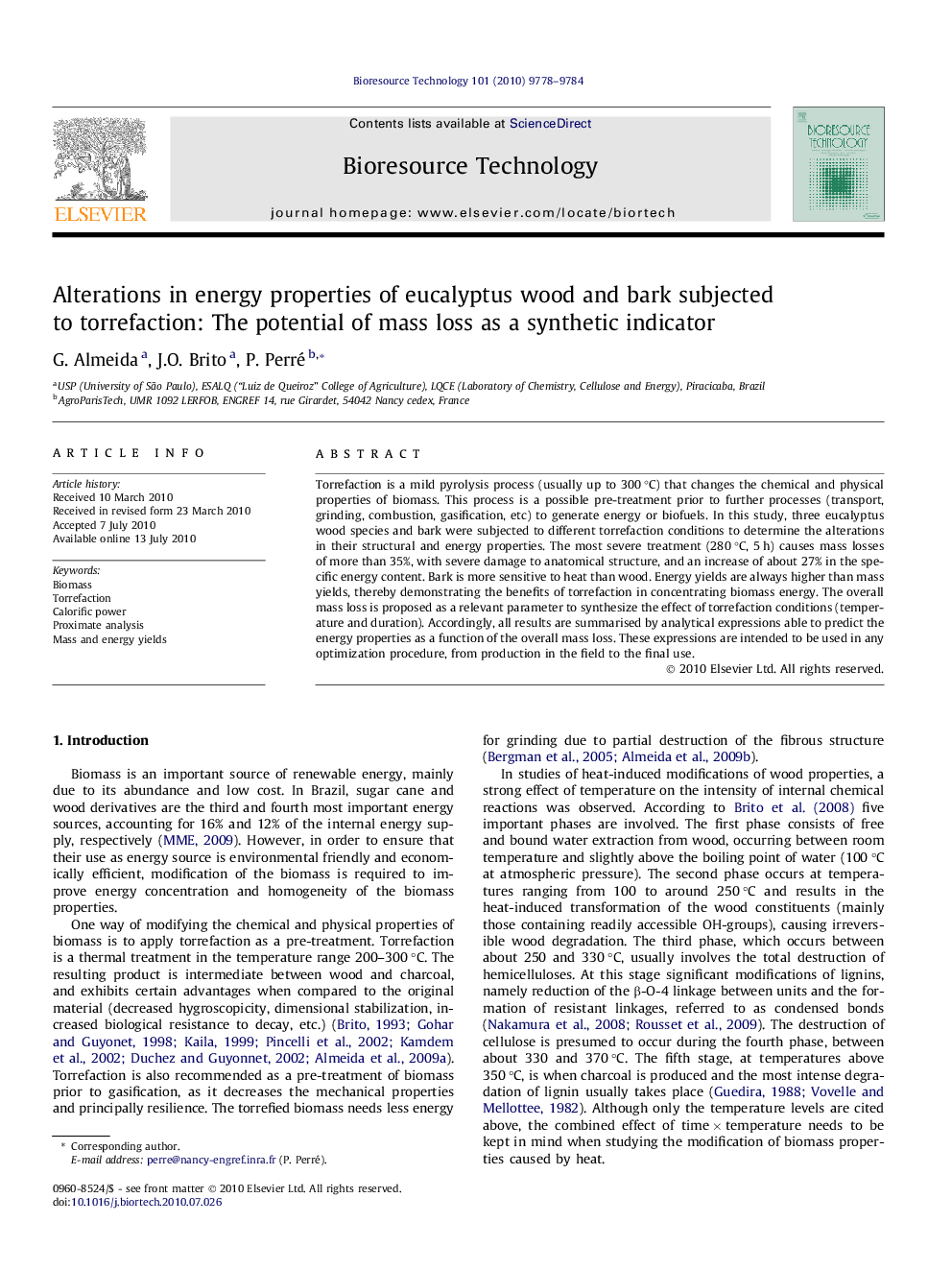| Article ID | Journal | Published Year | Pages | File Type |
|---|---|---|---|---|
| 682459 | Bioresource Technology | 2010 | 7 Pages |
Torrefaction is a mild pyrolysis process (usually up to 300 °C) that changes the chemical and physical properties of biomass. This process is a possible pre-treatment prior to further processes (transport, grinding, combustion, gasification, etc) to generate energy or biofuels. In this study, three eucalyptus wood species and bark were subjected to different torrefaction conditions to determine the alterations in their structural and energy properties. The most severe treatment (280 °C, 5 h) causes mass losses of more than 35%, with severe damage to anatomical structure, and an increase of about 27% in the specific energy content. Bark is more sensitive to heat than wood. Energy yields are always higher than mass yields, thereby demonstrating the benefits of torrefaction in concentrating biomass energy. The overall mass loss is proposed as a relevant parameter to synthesize the effect of torrefaction conditions (temperature and duration). Accordingly, all results are summarised by analytical expressions able to predict the energy properties as a function of the overall mass loss. These expressions are intended to be used in any optimization procedure, from production in the field to the final use.
